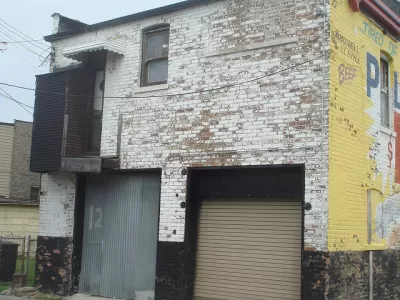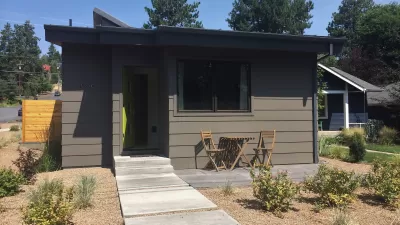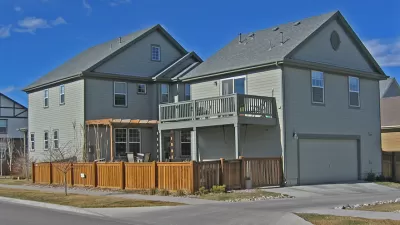Facing the potential for accessory dwelling units to win swift legalization in Chicago inspires one columnist to push back.

The city of Chicago banned the development of coach houses, the local term used to describe accessory dwelling units, in 1957, and according to Chicago Tribune columnist Eric Zorn, the city failed to ask, or answer, the following question: "Do we really want to ban them?"
Face forward to 2020, and the Chicago City Council is considering an ordinance to legalize ADUs with the support of Mayor Lori Lightfoot. Now, writes Eric Zorn, the city should ask itself the opposite question: "Do we really want to lift this ban?"
According to Zorn, the city had good reasons to implement the ban, like concerns about parking and neighborhood character. Zorn also advocates for a local veto of ADU enabling zoning changes: "The proposed change contains no provision for precincts to vote to exempt their areas from the construction of ADUs and no limit on the number of external, back-of-the-lot cottages or internal basement apartments that could open up in any one block."
FULL STORY: Column: Wait a sec! Is it really time to re-legalize granny flats 63 years after Chicago banned them?

Study: Maui’s Plan to Convert Vacation Rentals to Long-Term Housing Could Cause Nearly $1 Billion Economic Loss
The plan would reduce visitor accommodation by 25,% resulting in 1,900 jobs lost.

North Texas Transit Leaders Tout Benefits of TOD for Growing Region
At a summit focused on transit-oriented development, policymakers discussed how North Texas’ expanded light rail system can serve as a tool for economic growth.

Using Old Oil and Gas Wells for Green Energy Storage
Penn State researchers have found that repurposing abandoned oil and gas wells for geothermal-assisted compressed-air energy storage can boost efficiency, reduce environmental risks, and support clean energy and job transitions.

Private Donations Propel Early Restoration of Palisades Playground
Los Angeles has secured over $1.3 million in private funding to restore the Pacific Palisades playground months ahead of schedule, creating a modern, accessible space that supports community healing after recent wildfires.

From Blight to Benefit: Early Results From California’s Equitable Cleanup Program
The Equitable Community Revitalization Grant (ECRG) program is reshaping brownfield redevelopment by prioritizing projects in low-income and environmental justice communities, emphasizing equity, transparency, and community benefits.

Planting Relief: Tackling Las Vegas Heat One Tree at a Time
Nevada Plants, a Las Vegas-based nonprofit, is combating the city’s extreme urban heat by giving away trees to residents in underserved neighborhoods, promoting shade, sustainability, and community health.
Urban Design for Planners 1: Software Tools
This six-course series explores essential urban design concepts using open source software and equips planners with the tools they need to participate fully in the urban design process.
Planning for Universal Design
Learn the tools for implementing Universal Design in planning regulations.
Ascent Environmental
Borough of Carlisle
Institute for Housing and Urban Development Studies (IHS)
City of Grandview
Harvard GSD Executive Education
Toledo-Lucas County Plan Commissions
Salt Lake City
NYU Wagner Graduate School of Public Service




























